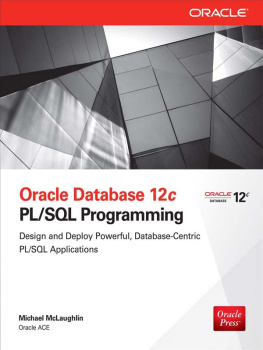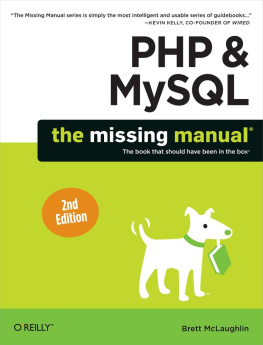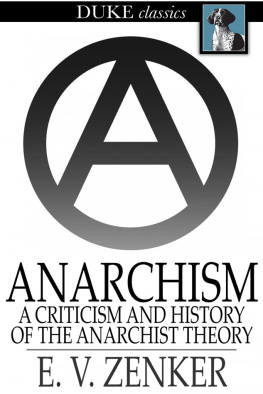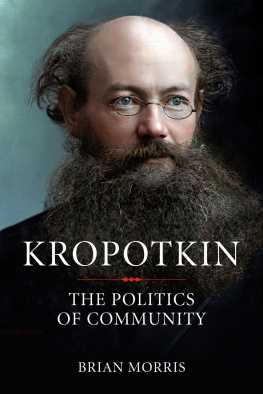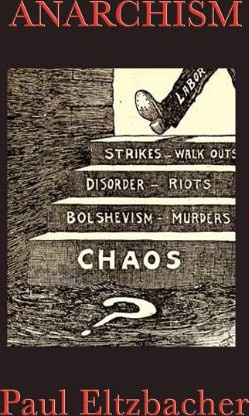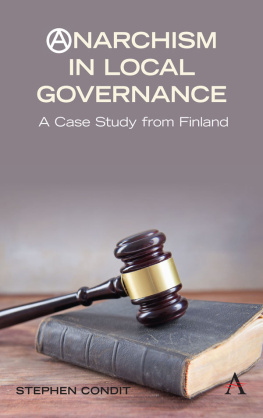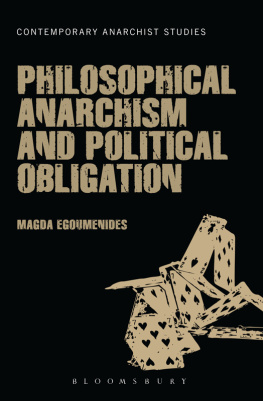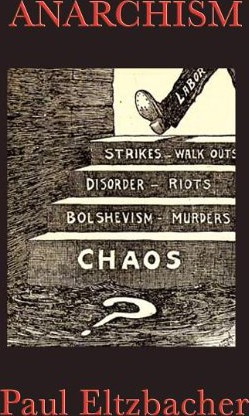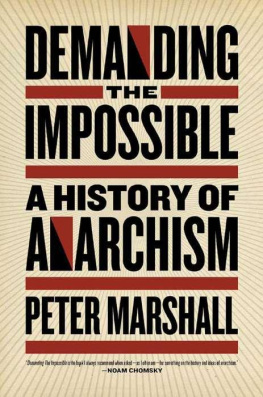ANARCHISM AND AUTHORITY
Examining the political theory of anarchism from a philosophical and historical perspective, Paul McLaughlin relates anarchism to the fundamental ethical and political problem of authority. The book pays particular attention to the authority of the state and the anarchist rejection of all traditional claims made for the legitimacy of state authority, the author both explaining and defending the central tenets of the anarchist critique of the state.
The founding works of anarchist thought, by Godwin, Proudhon and Stirner, are explored and anarchism is examined in its historical context, including the influence of such events as the Enlightenment and the French Revolution on anarchist thought. Finally, the major theoretical developments of anarchism from the late-nineteenth century to the present are summarized and evaluated.
This book is both a highly readable account of the development of anarchist thinking and a lucid and well-reasoned defence of the anarchist philosophy.
ASHAGTE NEW CRITICAL THINKING IN PHILOSOPHY
The Ashgate New Critical Thinking in Philosophy series brings high quality research monograph publishing into focus for authors, the international library market, and student, academic and research readers. Headed by an international editorial advisory board of acclaimed scholars from across the philosophical spectrum, this monograph series presents cutting-edge research from established as well as exciting new authors in the field. Spanning the breadth of philosophy and related disciplinary and interdisciplinary perspectives Ashgate New Critical Thinking in Philosophy takes contemporary philosophical research into new directions and debate.
Series Editorial Board:
David Cooper, Durham University, UK
Simon Critchley, New School for Social Research, USA; University of Essex, UK
Joseph Friggieri, University of Malta, Malta
Alan Goldman, College of William and Mary, USA
Paul Helm, Regent College, Canada
David Lamb, University of Birmingham, UK
Peter Lipton, University of Cambridge, UK
Alan Musgrave, University of Otago, New Zealand
Graham Priest, University of Melbourne, Australia; University of St Andrews, UK
Sean Sayers, University of Kent, UK
Anarchism and Authority
A Philosophical Introduction to Classical Anarchism
PAUL McLAUGHLIN
University of Tartu, Estonia
ASHGATE
Paul McLaughlin 2007
All rights reserved. No part of this publication may be reproduced, stored in a retrieval system or transmitted in any form or by any means, electronic, mechanical, photocopying, recording or otherwise without the prior permission of the publisher.
Paul McLaughlin has asserted his moral right under the Copyright, Designs and Patents Act, 1988, to be identified as the author of this work.
Published by
Ashgate Publishing Limited
Gower House
Croft Road
Aldershot
Hampshire GU11 3HR
England
Ashgate Publishing Company
Suite 420
101 Cherry Street
Burlington, VT 05401-4405
USA
Ashgate website: http://www.ashgate.com
British Library Cataloguing in Publication Data
McLaughlin, Paul
Anarchism and authority : a philosophical introduction to
classical anarchism. - (Ashgate new critical thinking in
philosophy)
1. Anarchism 2. Authority
I. Title
320.57
Library of Congress Cataloging-in-Publication Data McLaughlin, Paul.
Anarchism and authority : a philosophical introduction to classical anarchism / Paul
McLaughlin.
p. cm. -- (Ashgate new critical thinking in philosophy)
Includes bibliographical references and index.
ISBN 978-0-7546-6196-2 (hardcover) 1. Anarchism. I. Title.
HX833.M35 2007
335.83--dc22
2007007973
ISBN: 978-0-7546-6196-2
ISBN: 978-1-4094-8540-7 (ebk-ePUB)
Printed and bound in Great Britain by Antony Rowe Ltd, Chippenham, Wiltshire.
Contents
Acknowledgements
Many individuals deserve thanks for their help over the last five years.
Prof. John Cleary of NUI Maynooth and Boston College supervised my work with an open yet critical mind, and continued to support the project in a time of personal tragedy. I am most grateful to him.
Two employers, Prof. Roman Bcker of Nicolaus Copernicus University and Prof. Margit Sutrop of the University of Tartu, allowed me to give courses on anarchism. I have found that there is no better basis for my research than teaching, and am thankful to them for the opportunities they offered to me.
Heartfelt thanks must go, as always, to family, friends, colleagues, and students, wherever they may be: Ireland, England, Belgium, Poland, Germany, Estonia, Finland. You know who you are! However, two people should be singled out for special thanks: my mother, Maura McLaughlin, and my partner, Marta Majdecka. This book is dedicated to them.
Introduction
A Philosophical Approach to Anarchism
This book aims to define or to re-define anarchism in relation to the fundamental ethico-political problem of authority. Authority is defined in terms of the right to exercise social control (as explored in the sociology of power) and the correlative duty to obey (as explored in the philosophy of practical reason). Anarchism is distinguished, philosophically, by its scepticism towards such moral relations by its questioning of the claims made for such normative power and, practically, by its challenge to those authoritative powers which cannot justify their claims and which are therefore deemed illegitimate or without moral foundation.
).
).
This book is, therefore, largely a work of conceptual analysis. However, it is premised on the understanding that political ideas are products of history. The intellectual aspect of this history is central to the study. We will attempt to frame our analysis of the problem of authority within this intellectual history, thus blending conceptual analysis (in ).
In The account of anarchism presented here may appear to characterize the present author in this light, though, for what its worth, I would be extremely uncomfortable with such a characterization, and will attempt, especially in the Conclusion, to draw anarchism back from the realm of abstractions into the realm of concrete problems and radical solutions. The Conclusion, then, will contain a number of remarks on the social relevance of anarchism, as defined here. These remarks are intended to counter the widespread belief that a philosophical or sophisticated expression of anarchism necessarily points to an abstract anarchism an anarchism without revolutionary designs or potential. Our claim, on the contrary, is that a coherent philosophical articulation of the anarchist position is necessary (though obviously not sufficient) to make it practically forceful. Fundamental social change is, we contend, not only desirable but imperative. And anarchist alternatives, properly understood and communicated, may provide the best road ahead.
the critical philosophy of anarchism carefully. Accordingly, we undertake the latter in the present work, and hope to return to the former in a future study.
In , from the point of view of the history of ideas, it will be argued that anarchism is a child of the Enlightenment, that it received practical impetus as well as a crucial cautionary lesson from the French Revolution, and that it was influenced to a greatly underrated extent by the radical enlightenment philosophy of Left Hegelianism. Next, it will be argued that anarchisms intellectual foundations lie in three major philosophical works: Godwins An Enquiry Concerning Political Justice, Proudhons What is Property?, and Stirners
Next page

